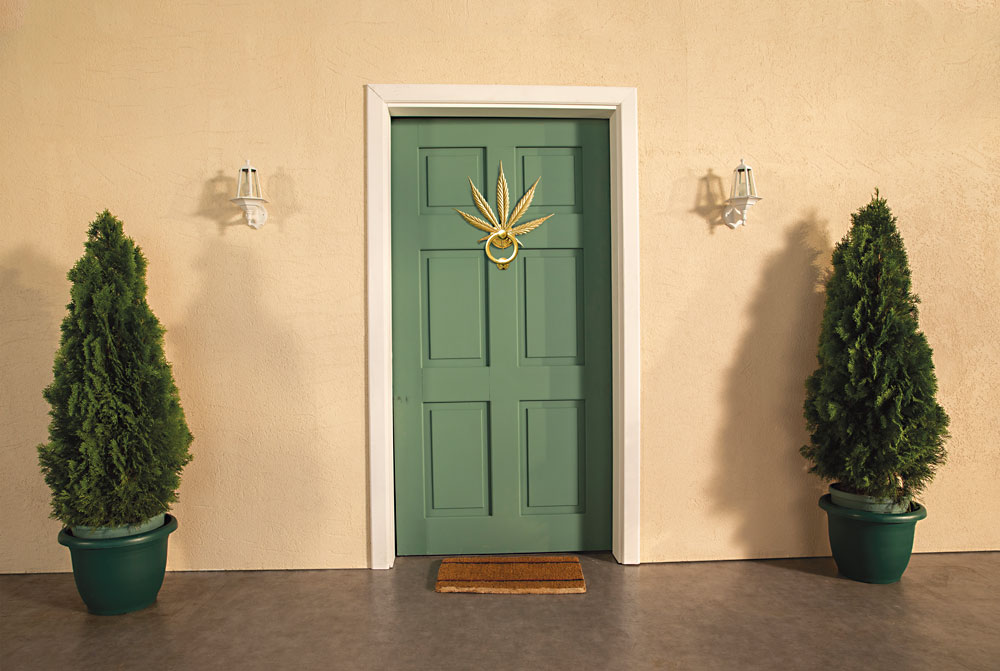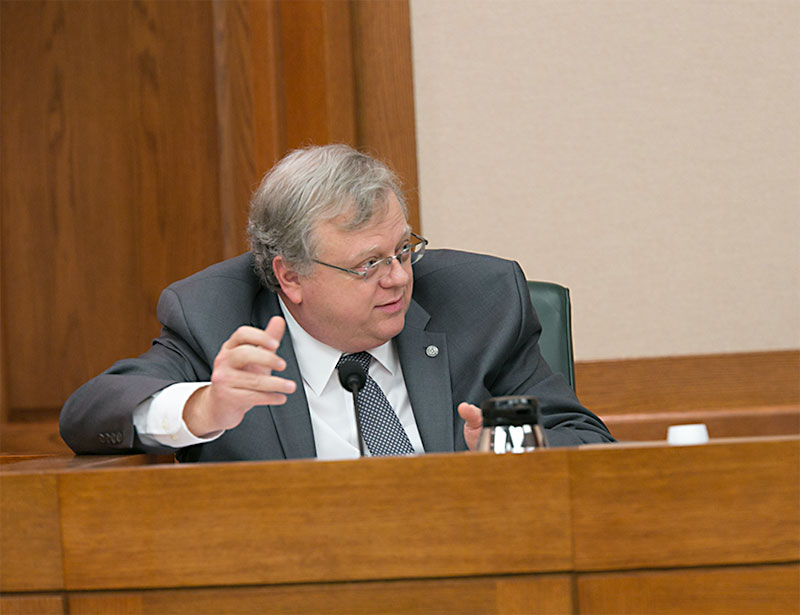Nobody Wants to Stop Voters From Approving Prop A
Pro-legalization and pro-freedom folks see eye to eye on the May 7 ballot
By Austin Sanders, Fri., April 29, 2022
Austin voters on May 7 are being asked to approve a city ordinance, brought to the ballot by citizen initiative, that has two parts: "to (1) eliminate enforcement of low-level marijuana offenses and (2) ban the use of 'no knock' warrants by Austin police." Its supporters call it the Austin Freedom Act; on the ballot, it's Proposition A.
As a matter of Austin Police Department policy, officers already do not arrest or cite people for misdemeanor possession of marijuana, but that's because police Chief Joe Chacon agrees that such enforcement is not worth the trouble. No-knock warrants, which allow officers to storm into a suspect's home without announcing their presence, are also very rare in Austin, police sources tell the Chronicle, although Chacon has the power to authorize execution of such a warrant.
So nothing much may change visibly on the ground on May 8 should Prop A prevail. But Ground Game Texas, a new progressive campaign collective that petitioned to get Prop A on the May ballot and is undertaking similar efforts in nine other Texas cities, argues that enshrining both policies in city ordinance would be a major victory for public safety in Austin.
"If voters approve Prop A, the community is telling our police chief that marijuana enforcement is not a benefit for our community," Mike Siegel, co-founder and political director for GGTX, told the Chronicle. And prohibiting no-knock warrants would be a "major public safety improvement" that would eliminate the "risk to bystanders, homeowners, and officers themselves" that can occur during execution of these warrants. (That's why they're controversial, having led to the death of Breonna Taylor in Louisville, Ky., in March 2020, among other cases.)

Four Ounces or Less
"Low-level marijuana offenses" means class A and B misdemeanors – i.e., possessing any amount of marijuana less than 4 ounces, as defined by the Texas Penal Code. Exceptions would exist if APD believes the possession is connected to a violent felony or a felony-level narcotics case designated as "high priority" by APD leadership. If a cop does stop someone and finds marijuana, they would be directed to seize the dope, release the person, then write up a report on the incident. The ordinance would also prohibit officers from issuing citations over possession of drug residue or drug paraphernalia, a class C misdemeanor.
The winding road toward the effective decriminalization of marijuana in Austin began in 2019, when the Texas Legislature passed a new law intended to allow for the cultivation of hemp at industrial scale. As long as hemp farmers ensured the tetrahydrocannabinol (i.e., THC, the chemical compound in marijuana that produces a high) concentration of their crop remained below 0.3%, they could grow hemp for a variety of purposes.
But to distinguish between the legal and illegal growth of hemp, county prosecutors across Texas would need test results from specialized forensic equipment to measure the THC concentration. Most law enforcement agencies in Texas do not have that technology on hand, which is expensive to operate at any rate. So prosecutors began to tell state lawmakers that they would simply stop prosecuting possession cases. Alongside them were reformers who see this as an opportunity to push back on harmful War on Drugs laws that have landed people in prison for possessing a drug that has gained increasing cultural acceptance in recent years, and which 1 in 3 Americans can now purchase legally in their states.
In January 2020, Austin's City Council approved a resolution directing then-police Chief Brian Manley to institute policy at APD that officers would not arrest or cite people for possessing small amounts of marijuana. Manley responded the following day, defiantly telling reporters that his officers would continue to make those arrests and issue those citations, because possession of marijuana was still against the law in Texas.
Six months later, he did adopt a version of the policy that mostly satisfied Council; it does not protect those in possession of vape pens or edibles, which are felonies (rather than misdemeanors) under state law. Notably, the Austin Police Association does not oppose Prop A; union President Ken Casaday tells us he's fine with marijuana decriminalization and wishes the Texas Legislature would do so statewide.
Rarely Warranted
The APA isn't formally opposing prohibition of no-knock warrants either, but Casaday says a win for Prop A would remove a useful, albeit rarely deployed, police tactic.
Under department policy, no-knock warrants have to be approved by an APD commander and a judge, which Casaday says requires enough high-level clearance to ensure they are only used when necessary. Usually that's when police believe a suspect is armed and poses a threat to officers – Casaday said APD abandoned the use of no-knock warrants to prevent suspects from destroying evidence years ago. If voters approve Prop A, APD would only be able to execute warrants after officers announce their presence and wait 15 seconds.
According to data obtained by the Chronicle, APD executed three no-knock warrants in 2021, after the department began tracking their use in 2020, pursuant to another Council resolution. In one case, officers announced their presence anyway, even though the warrant was authorized.
Though no-knock warrants are now used sparingly by APD, that wasn't always the case. In one high-profile 2016 incident, an APD SWAT team raided the home of a teenager believed to be selling drugs; the teenager did not know it was officers raiding his home, so he fired at them, hitting an officer in the leg while officers killed the suspect's dog. In the end, cops recovered little more than an ounce of pot. Breonna Taylor's death in 2020 renewed awareness and resistance to the warrants' use, with attempts to ban them legislatively at the state and federal levels. – Austin Sanders
Constitutional Amendments: But Mah Property Taxes!
Statewide sticker shock hits just in time for election
It may seem like Texas' broken state government is only moved to get out of bed in the morning by Fox News trending topics, but key players haven't yet forgotten that the mandate to lower voters' property tax bills is eternal and transcends all election and news cycles. Hence we have two constitutional amendments at the very next statewide general election date after the ones Texans approved last November, which also included mechanisms to lower property tax bills.
If you are brand-new to Texas, which in Austin you might be: Yes, we have to amend the state constitution to tweak property tax bills, because we are not supposed to have a statewide property tax! Local government, closest to the people who pay, is supposed to be in charge of ad valorem property taxation. The fetters imposed on those selfsame local governments are getting us ever closer to the vanishing point where every single property tax increase of any size will require a local tax rate election, such as Austin voters self-imposed in 2020 to fund Project Connect, and which many Texas cities and school districts are holding on May 7.
For city of Austin voters, these amendments will be the only things on your ballot other than Proposition A. The ballot language for Proposition 1 (only the state gets to use numbers) makes pretty much zero sense but is designed to let over-65 Texans and those with disabilities see their school district property taxes decline as those districts compress their tax rates, as the Legislature has dictated. ("Compress" is Legespeak for "constrain to within what lawmakers would like to be Texas' rate of inflation.") State Sen. Paul Bettencourt, R-Houston, the Lege's go-to expert in lowering property tax bills, told The Dallas Morning News that the obtuse language wasn't his idea but was deemed legally required by the Texas Legislative Council. Without this fix, the elderly/disabled taxpayers' frozen property taxes would eventually be higher than those of median homeowners.
Proposition 2 is much easier to understand, and with voters all over the Great State reeling from skyrocketing property appraisals because Texas is a very rich though not very equitable place, increasing the school district property tax homestead exemption is going to be very attractive, just as increasing Austin's city homestead exemption was very attractive and is probably coming back to bite us now that the city's taxing capacity is likewise constrained via revenue caps. At least the school district exemption is a flat rate rather than a percentage of value, and many property owners are looking at appraisals that have increased by at least the 60% that Prop 2 would increase the school homestead exemption (to $40,000 from $25,000). But it's still money school districts will not receive. Is that a cause for concern? The Lege says it committed in 2019 to pick up the difference; those who typically oppose things that could reduce school funding are not mobilizing to oppose either amendment yet. – Mike Clark-Madison
Got something to say? The Chronicle welcomes opinion pieces on any topic from the community. Submit yours now at austinchronicle.com/opinion.









